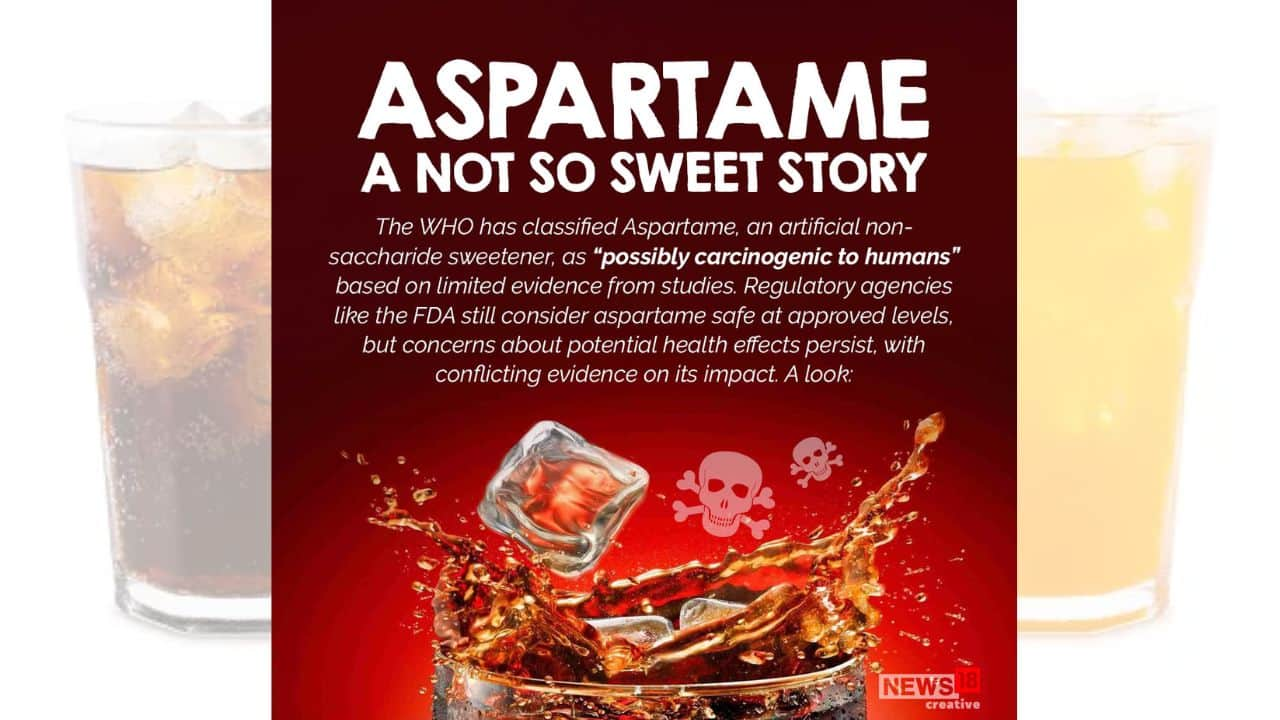
The WHO has classified Aspartame, an artificial nonsaccharide sweetener, as “possibly carcinogenic to humans” based on limited evidence from studies. (Image: News18 creative)
In July 2023, the International Agency for Research on Cancer (IARC) classified aspartame as “possibly carcinogenic to humans” based on limited evidence from human and animal studies. (Image: News18 creative)
Due to its high sweetness intensity, only a small amount of aspartame is needed to provide the same level of sweetness as sugar. (Image: News 18 Creative)
Other expert groups like the WHO/FAO Joint Expert Committee on Food Additives (JECFA) concluded
aspartame is safe at approved intake levels. (Image: News18 creative)
Aspartame is an ingredient in a variety of low-sugar or sugar-free packaged foods, including diet coke, ice cream, chewing gum, diet soda, sugar-free soda, cereals, low-calorie coffee sweeteners, puddings, sugar-free desserts, sugar-free jams, and diet soda. (Image: News18 creative)
Despite concerns about increased appetite and weight gain, evidence from randomised controlled trials indicates substituting aspartame for sugar can aid in weight loss and maintenance (Image: News18 creative)
High doses of aspartame may have neurological effects, but typical dietary intakes are not
concerning. (Image: News18 creative)
Intakes below the ADI are not expected to pose health risks. Only very high intakes above the ADI may be concerning. Products containing aspartame must declare it in the ingredients list. (Image: News 18 creative)
Discover the latest Business News, Sensex, and Nifty updates. Obtain Personal Finance insights, tax queries, and expert opinions on Moneycontrol or download the Moneycontrol App to stay updated!









